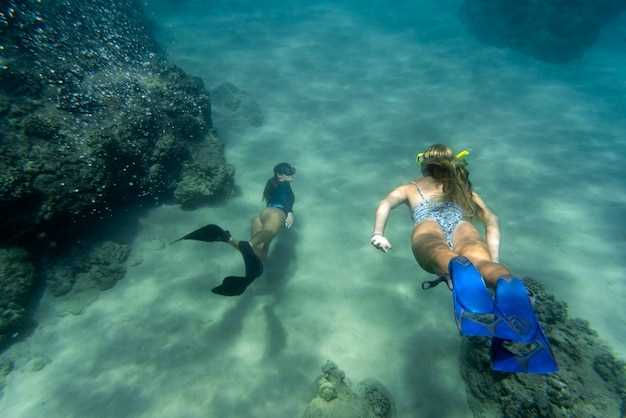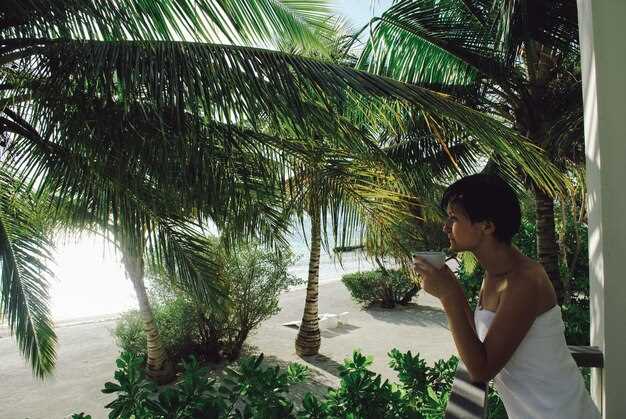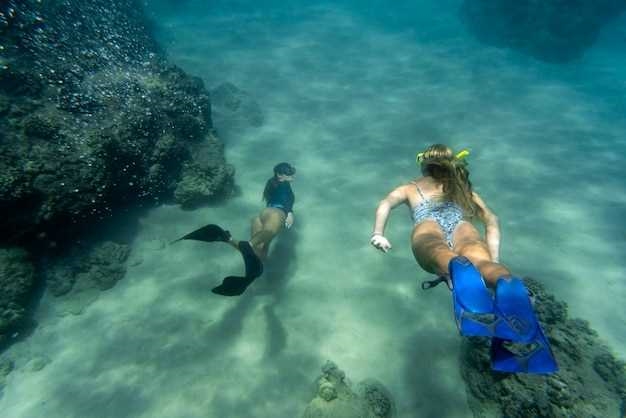
Imagine a paradise where turquoise waters gently caress pristine white sand beaches, and vibrant coral reefs teem with an abundance of marine life. Welcome to the Maldives, a breathtaking archipelago nestled in the heart of the Indian Ocean. This tropical haven has long been synonymous with luxury and relaxation, attracting travelers from around the globe. However, beneath its idyllic surface lies a pressing need for sustainable practices and eco-friendly resorts to preserve the natural beauty that makes the Maldives so enchanting.
As travelers become increasingly conscious of their environmental impact, the concept of sustainable tourism has gained significant traction. In the context of the Maldives, sustainable tourism refers to the responsible exploration and enjoyment of the islands’ natural resources while minimizing negative impacts on the environment and local communities. It encompasses a range of practices, from conserving energy and water to supporting local businesses and preserving fragile ecosystems.
One of the key pillars of sustainable travel in the Maldives is conservation. The archipelago is home to an extraordinary array of marine life, including vibrant coral reefs, sea turtles, and manta rays. These fragile ecosystems are under threat from climate change, pollution, and overfishing. To combat these challenges, numerous initiatives have been implemented to protect and restore the Maldives’ biodiversity. From establishing marine protected areas to implementing sustainable fishing practices, these efforts aim to ensure the long-term survival of the islands’ unique flora and fauna.
Preserving the Pristine Beauty of the Maldives
The Maldives, a breathtaking archipelago in the Indian Ocean, is renowned for its untouched natural beauty and vibrant marine life. This section delves into the efforts made to protect and maintain the unspoiled charm of this paradise destination.
1. Conserving Biodiversity:
- Protecting the diverse ecosystems and fragile coral reefs that thrive in the Maldives is of utmost importance.
- Preserving the rich biodiversity ensures the survival of numerous species, including endangered ones.
- Implementing strict regulations and monitoring programs helps maintain the delicate balance of the ecosystem.
2. Sustainable Fishing Practices:
- Promoting sustainable fishing methods, such as pole and line fishing, reduces the impact on marine life and ensures the long-term viability of fish populations.
- Encouraging local communities to engage in responsible fishing practices helps preserve the traditional way of life while safeguarding the marine environment.
3. Waste Management:
- Implementing effective waste management systems is crucial to prevent pollution and maintain the pristine beauty of the Maldives.
- Encouraging recycling, reducing single-use plastics, and promoting responsible waste disposal practices are key initiatives.
- Collaborating with resorts, local communities, and tourists to raise awareness about the importance of proper waste management is essential.
4. Protecting Endangered Species:
- Preserving the habitats of endangered species, such as sea turtles and whale sharks, is a priority in the Maldives.
- Implementing conservation programs and establishing protected areas contribute to the survival and recovery of these vulnerable species.
- Education and awareness initiatives play a vital role in fostering a sense of responsibility towards the protection of these magnificent creatures.
5. Sustainable Tourism Practices:
- Promoting responsible tourism practices, such as low-impact activities and eco-friendly accommodations, ensures the preservation of the Maldives’ pristine beauty.
- Encouraging tourists to engage in sustainable activities, such as snorkeling and diving, while respecting the natural environment helps minimize the ecological footprint.
- Supporting local communities and their traditional practices through sustainable tourism initiatives contributes to the overall conservation efforts.
Preserving the pristine beauty of the Maldives requires a collective effort from government bodies, local communities, resorts, and tourists. By implementing sustainable practices and raising awareness about the importance of conservation, this paradise destination can continue to captivate visitors while safeguarding its natural wonders for generations to come.
The Role of Sustainable Accommodations in Responsible Travel
When it comes to responsible travel, the role of eco-friendly resorts cannot be overstated. These environmentally conscious accommodations play a crucial part in promoting sustainable practices and preserving the natural beauty of destinations like the Maldives. By implementing innovative strategies and adopting eco-friendly technologies, these resorts strive to minimize their ecological footprint and create a harmonious balance between tourism and nature.
One of the key roles of eco-friendly resorts is to educate and raise awareness among their guests about the importance of sustainable tourism. Through various initiatives and programs, they aim to inspire travelers to make conscious choices that benefit both the environment and local communities. By showcasing sustainable practices, such as renewable energy sources, waste reduction, and water conservation, these resorts serve as role models for responsible travel.
- By utilizing renewable energy sources, such as solar power and wind turbines, eco-friendly resorts reduce their reliance on fossil fuels and minimize greenhouse gas emissions.
- Implementing waste reduction measures, such as recycling programs and composting, helps these resorts minimize the amount of waste sent to landfills and promotes a circular economy.
- Water conservation is another crucial aspect of sustainable tourism. Eco-friendly resorts employ various strategies, such as rainwater harvesting and water-efficient fixtures, to reduce water consumption and preserve this precious resource.
In addition to their environmental efforts, eco-friendly resorts also prioritize the well-being of local communities. They actively engage with the local population, supporting local businesses, and providing employment opportunities. By incorporating elements of local culture and traditions into their operations, these resorts contribute to the preservation of cultural heritage and promote a deeper understanding and appreciation of the destination.
Overall, eco-friendly resorts play a vital role in sustainable tourism by demonstrating that responsible travel is not only possible but also enjoyable. Through their commitment to environmental conservation and community engagement, these accommodations pave the way for a more sustainable future in the Maldives and beyond.
Conservation Efforts to Protect Marine Life in the Maldives
The Maldives, renowned for its breathtaking natural beauty and vibrant marine ecosystems, has implemented various conservation efforts to safeguard its marine life. These initiatives aim to preserve the delicate balance of the underwater world, ensuring the long-term sustainability of the Maldives’ diverse marine species and their habitats.
One of the key conservation efforts in the Maldives is the establishment of marine protected areas (MPAs). These designated zones serve as sanctuaries for marine life, allowing them to thrive without disturbance from human activities. By restricting fishing, anchoring, and other potentially harmful practices, MPAs help to safeguard the biodiversity and ecological integrity of the Maldives’ marine ecosystems.
In addition to MPAs, the Maldives has implemented strict regulations and guidelines for sustainable fishing practices. These measures include setting catch limits, promoting selective fishing methods, and enforcing seasonal fishing bans to protect vulnerable species during their breeding seasons. By promoting responsible fishing practices, the Maldives aims to ensure the long-term viability of its fisheries while minimizing the impact on marine ecosystems.
The Maldives also recognizes the importance of raising awareness and educating both locals and tourists about the significance of marine conservation. Through educational programs and outreach initiatives, the Maldives aims to foster a sense of environmental stewardship and encourage individuals to actively participate in conservation efforts. By empowering communities and promoting sustainable practices, the Maldives strives to create a collective commitment towards protecting its marine life.
| Conservation Efforts | Description |
|---|---|
| Marine Protected Areas (MPAs) | Designated zones that serve as sanctuaries for marine life, protecting them from human activities. |
| Sustainable Fishing Practices | Strict regulations and guidelines to ensure responsible fishing methods and protect vulnerable species. |
| Education and Awareness | Programs and initiatives to raise awareness and foster environmental stewardship among locals and tourists. |
Sustainable Practices in Energy and Water Management

Efficient management of energy and water resources plays a crucial role in promoting sustainability and minimizing the environmental impact of tourism activities in the captivating Maldives. This section explores the innovative approaches and practices employed by resorts to ensure responsible consumption and conservation of energy and water resources.
Energy Management:
Resorts in the Maldives are committed to reducing their carbon footprint and dependence on non-renewable energy sources. They employ various sustainable practices to optimize energy consumption and promote the use of renewable energy. These include the installation of solar panels to harness the abundant sunlight, utilizing energy-efficient lighting systems, and implementing smart energy management systems to monitor and control energy usage in guest rooms and common areas.
Furthermore, resorts prioritize the use of energy-efficient appliances and equipment, such as low-energy air conditioning units and energy-saving kitchen appliances. By adopting these measures, they not only reduce their environmental impact but also contribute to cost savings and long-term sustainability.
Water Management:
Water scarcity is a significant concern in the Maldives, making efficient water management practices essential for sustainable tourism. Resorts implement various strategies to minimize water consumption and preserve this precious resource.
One approach is the installation of water-saving fixtures and fittings, such as low-flow showerheads, faucets, and toilets. These fixtures help reduce water usage without compromising guest comfort. Resorts also employ advanced water treatment and recycling systems to treat and reuse wastewater for irrigation and other non-potable purposes.
Additionally, resorts educate guests about the importance of water conservation through informative signage and in-room materials. They encourage guests to participate in their conservation efforts by offering incentives for towel and linen reuse, promoting shorter showers, and providing filtered drinking water to reduce the consumption of bottled water.
In conclusion, sustainable practices in energy and water management are integral to the conservation and eco-friendly initiatives undertaken by resorts in the Maldives. By implementing energy-efficient technologies and promoting responsible water consumption, these resorts strive to minimize their environmental impact while providing an unforgettable and sustainable tourism experience.
Promoting Local Culture and Community Engagement
Embracing the rich heritage and traditions of the Maldives, sustainable tourism initiatives in this idyllic island nation focus on fostering a deep connection between visitors and the local culture. By actively engaging with the community, tourists have the opportunity to immerse themselves in the vibrant traditions, customs, and way of life of the Maldivian people.
Preserving Cultural Heritage
One of the key aspects of promoting local culture is the preservation of the Maldivian cultural heritage. Efforts are made to safeguard traditional practices, such as music, dance, and craftsmanship, which have been passed down through generations. Visitors can witness captivating performances of traditional Maldivian music and dance, providing a glimpse into the cultural richness of the islands.
Community Involvement and Empowerment
Community engagement plays a crucial role in sustainable tourism in the Maldives. Local communities are actively involved in decision-making processes and are empowered to participate in tourism-related activities. This ensures that the benefits of tourism are shared equitably among the residents, fostering a sense of ownership and pride in their cultural heritage.
- Local artisans and craftsmen are given opportunities to showcase their skills and sell their products, providing them with a sustainable source of income.
- Visitors can participate in community-led initiatives, such as beach clean-ups and coral reef conservation projects, contributing to the preservation of the natural environment and the local way of life.
- Homestays and cultural exchanges allow tourists to stay with local families, experiencing firsthand the daily routines, traditions, and cuisine of the Maldivian people.
By promoting local culture and community engagement, sustainable tourism in the Maldives not only preserves the unique heritage of the islands but also creates meaningful and authentic experiences for visitors. This approach ensures that tourism contributes to the overall well-being and prosperity of the local communities, while safeguarding the natural beauty and resources of the Maldives for future generations.
Responsible Tourism: Minimizing Environmental Impact in the Maldives
When it comes to exploring the stunning natural beauty of the Maldives, responsible tourism plays a crucial role in preserving the delicate ecosystem and minimizing the environmental impact. By adopting sustainable practices and promoting eco-friendly initiatives, visitors can contribute to the conservation efforts of this breathtaking destination.
One of the key aspects of responsible tourism in the Maldives is the preservation of its diverse marine life and coral reefs. These vibrant ecosystems are home to a wide range of species and are essential for maintaining the overall balance of the environment. By practicing responsible snorkeling and diving techniques, such as avoiding touching or damaging the coral, visitors can help protect these fragile habitats for future generations.
Another important aspect of responsible tourism is the promotion of sustainable transportation methods. In the Maldives, this means opting for eco-friendly modes of travel, such as using electric boats or bicycles, instead of traditional motorized vehicles. By reducing carbon emissions and minimizing noise pollution, visitors can enjoy the natural beauty of the Maldives while minimizing their impact on the environment.
Responsible tourism also involves supporting local communities and their sustainable livelihoods. By choosing to stay in eco-friendly resorts that prioritize local sourcing and employ environmentally conscious practices, visitors can contribute to the economic development of the Maldives while minimizing their ecological footprint. Additionally, engaging in cultural exchanges and supporting local artisans and businesses can help preserve the unique traditions and heritage of the Maldivian people.
| Benefits of Responsible Tourism in the Maldives |
|---|
| Preservation of marine life and coral reefs |
| Reduction of carbon emissions and noise pollution |
| Support for local communities and sustainable livelihoods |
| Preservation of cultural heritage and traditions |
In conclusion, responsible tourism in the Maldives is essential for minimizing the environmental impact and ensuring the long-term sustainability of this paradise destination. By adopting sustainable practices, supporting local communities, and preserving the natural and cultural heritage, visitors can play a vital role in protecting the Maldives for future generations to enjoy.



